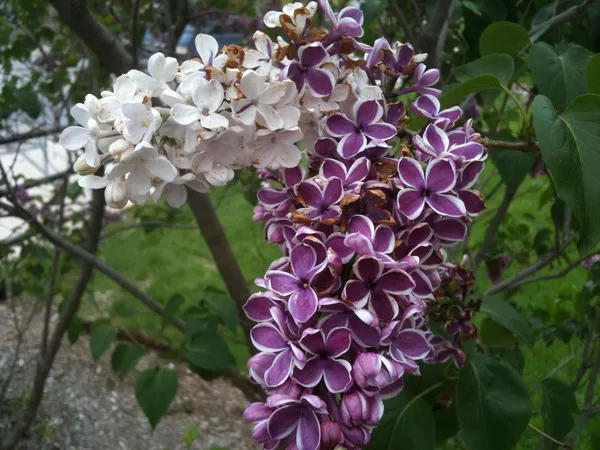Flowers have captivated human beings for centuries, not just for their exquisite beauty but also for the ephemeral nature of their existence. They bloom, they dazzle, and then they wither away. However, there are methods and techniques that can extend the lifespan of cut flowers, allowing us to enjoy their splendor for a longer period.
Understanding the Physiology of Flowers
Before delving into the specifics of flower care, it’s crucial to understand the physiology of flowers. Cut flowers are no longer connected to their source of nutrients, which is the plant they grew on. Therefore, they rely on the water and nutrients they absorb through their stems to survive. This information is fundamental when considering ways to extend the life of your cut flowers.
The Role of Water
Water is one of the primary elements that affect the longevity of cut flowers. It plays a critical role in maintaining the turgidity and freshness of the blooms.
Clean Water Matters: When you receive a bouquet or purchase cut flowers, start by ensuring the vase or container is clean. Bacteria in the water can clog the stems and reduce the flowers’ ability to absorb water and nutrients. Regularly change the water to maintain its freshness.
Proper Water Temperature: Flowers tend to take up water more efficiently when it is slightly warm, but not hot. Warm water molecules move more quickly, making it easier for the flowers to drink.
Water Level: Keep the vase filled with water, ensuring that no leaves are submerged. Submerged leaves can decay and promote bacterial growth in the water.
Use Flower Food: Commercial flower preservatives can help extend the life of cut flowers. They contain essential nutrients and anti-bacterial agents. Follow the instructions on the packet for the best results.
Hydration: Recut the flower stems at an angle under running water to prevent air bubbles from forming in the stem. This allows for better water uptake.
The Role of Temperature
Temperature also plays a crucial role in flower longevity. Different flowers have varying temperature preferences, but a general guideline is to keep them in a cool environment.
Avoid Extreme Temperatures: Flowers last longer in a cool environment. Keep them away from direct sunlight, heating vents, and drafts. Avoid placing them near ripening fruit, as fruits release ethylene gas, which can accelerate wilting in flowers.
Refrigeration: If possible, store your cut flowers in a refrigerator overnight, but ensure they are away from fruits and vegetables, as mentioned earlier. Refrigeration can help slow down the aging process.
Vase Placement: Ensure the vase is placed on a stable surface. When flowers wobble or topple over, it can cause damage and reduce their lifespan.
Feeding and Nutrition
Just like humans, flowers require proper nutrition to thrive and last longer. While they no longer have access to the soil’s nutrients, you can provide them with essential elements.
Use Flower Food: Commercial flower food contains essential nutrients such as sugar, citric acid, and bleach to maintain water clarity and reduce bacterial growth. These nutrients are vital for your flowers’ longevity.
DIY Flower Food: If you prefer a homemade approach, a mixture of sugar and a few drops of bleach can be added to the water. The sugar acts as a food source, while the bleach prevents bacterial growth.
Change the Water Regularly: To ensure your flowers receive a constant supply of nutrients, change the water and replenish the flower food every few days.
Trimming and Pruning
Regular maintenance and trimming can significantly impact the lifespan of your flowers.
Trimming Dead Leaves and Petals: As flowers age, some petals and leaves may wither and decay. Remove these dead parts promptly to prevent them from contaminating the water.
Re-Cutting Stems: To promote water uptake, recut the stems every few days at an angle, preferably under running water. This also prevents air bubbles from forming in the stems.
Air Quality and Ethylene Sensitivity
Air quality can affect the longevity of your flowers. Additionally, some flowers are more sensitive to ethylene gas than others, which is produced by fruits and can accelerate wilting in flowers.
Ethylene Sensitivity: Some flowers, such as roses, are particularly sensitive to ethylene gas. To prolong their life, keep them away from fruits like apples and bananas.
Air Circulation: Good air circulation can prevent the buildup of ethylene gas around your flowers. Use a fan or open a window if necessary.
Special Care for Specific Flowers
Different types of flowers have unique needs and characteristics that require specific care to extend their lifespan. Here are some tips for popular flowers:
Roses: Trim the stems at a 45-degree angle to allow for better water absorption. Remove any submerged leaves to prevent bacterial growth. Roses thrive in slightly warm water.
Tulips: Keep tulips in a cool environment. They continue to grow after being cut, so trim the stems periodically to maintain the desired height.
Lilies: Remove the pollen sacs from lilies to prevent staining and to prolong the life of the blooms. Change the water regularly.
Daffodils: Daffodils exude a sap that can be harmful to other flowers. Keep them in a separate vase for the first 24 hours before arranging them with other flowers.
Orchids: Submerge orchid stems in water for a few seconds every few days to rehydrate them. They prefer indirect sunlight and a humid environment.
Carnations: Carnations benefit from warm water and a commercial flower preservative. Remove any submerged leaves to prevent rot.
Conclusion
Flowers are nature’s gift to brighten our lives with their beauty and fragrance. Understanding the principles of flower care can significantly extend their lifespan, allowing us to enjoy them for longer periods. By providing clean water, maintaining the right temperature, offering proper nutrition, and implementing good maintenance practices, you can prolong the beauty of your cut flowers. Whether you’re arranging a bouquet for a special occasion or simply enjoying a touch of nature in your home, these tips and techniques will help ensure your flowers last longer, spreading joy and elegance throughout your surroundings.


